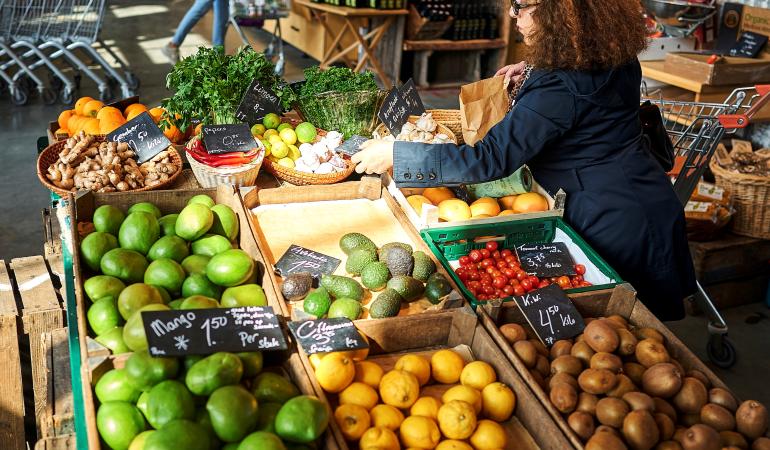
Dutch people are eating and drinking more healthily. We know this because of RIVM’s new Dutch National Food Consumption Survey (Voedselconsumptiepeiling, VCP). Dutch people are eating more plant products, like fruit and vegetables, unsalted nuts and legumes. They are eating less red and processed meat. They are also drinking fewer sugary drinks.
Both children and adults are eating and drinking more healthily. However, most Dutch people are not following the Dutch dietary guidelines yet. This is less good news. In the Dutch dietary guidelines, the Health Council of the Netherlands describes which foods and eating habits lead to a healthier life. The advice is to eat enough fruit, vegetables and wholegrain products, like bread.
Much more fruit and vegetables
The new VCP (2019–2021) shows that Dutch people (aged between 7 and 69) are eating more vegetables a day. The VCP for 2007–2010 showed that Dutch people ate 128 grams a day. In 2012–2016, this was 135 grams. It is now 163 grams. The percentage of adults who follow the guideline for vegetables has now doubled to 29%. In the last survey, this was 16%. Dutch people are also eating more fruit: first 103, then 117 and now 129 grams a day.
Less meat, fewer sugary drinks
At the same time, Dutch people are eating much less red and processed meat: more than 20% less than shown in the VCP for 2007–2010. They are also drinking fewer sugary drinks (such as soft drinks and fruit juices). The number of grams per day has fallen from 382 in 2012–2016 to 240 grams. At the same time, they are drinking more tea and water.
About the Dutch National Food Consumption Survey
RIVM has performed the Dutch National Food Consumption Survey (DNSFCS) among 3,500 children and adults. The DNFCS shows what, where and when Dutch people eat and drink and compares this to the Health Council guidelines. With this data, policymakers and professionals can work on healthy nutrition, sustainable and safe food education and food research. Go to the website WateetNederland.nl for details.